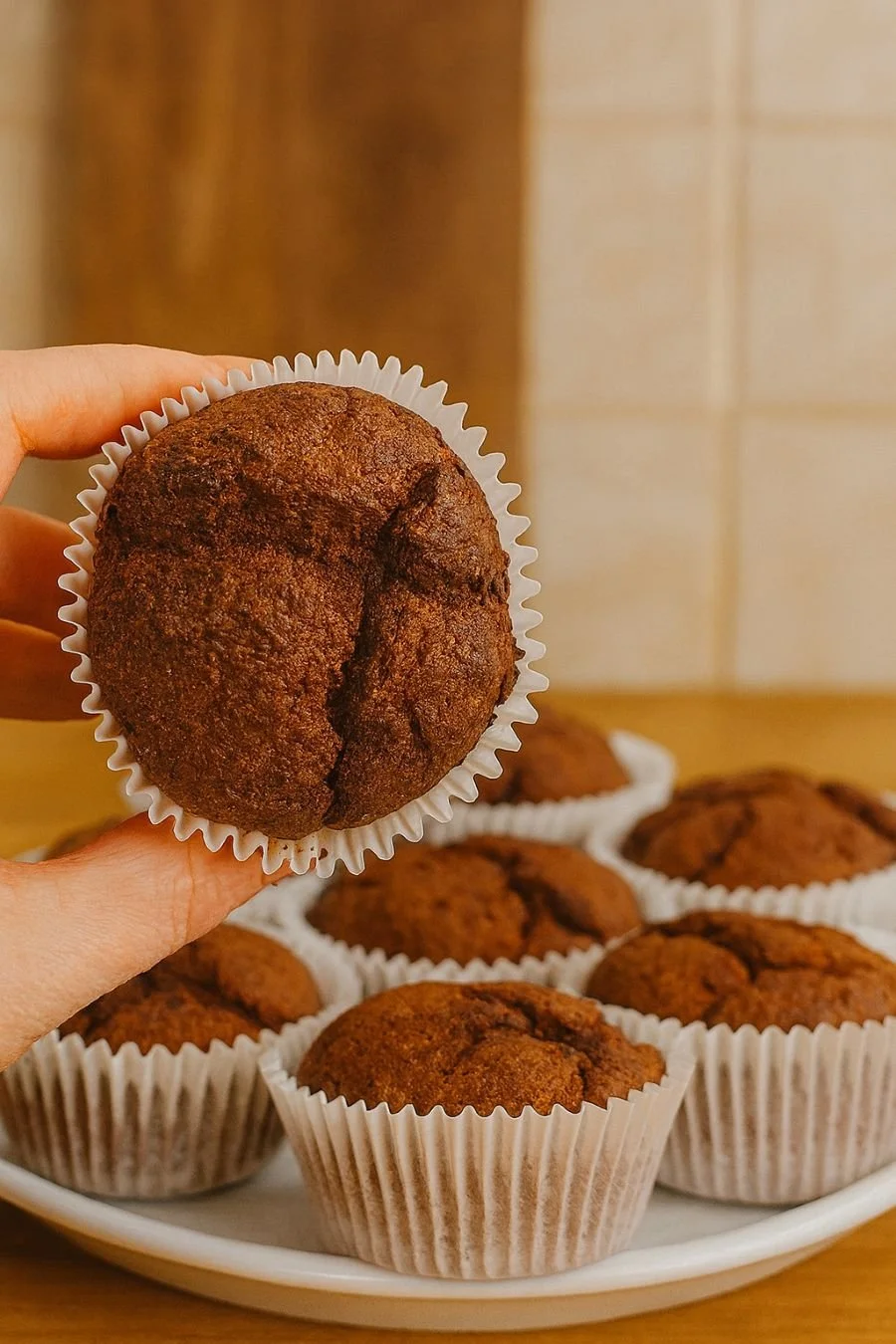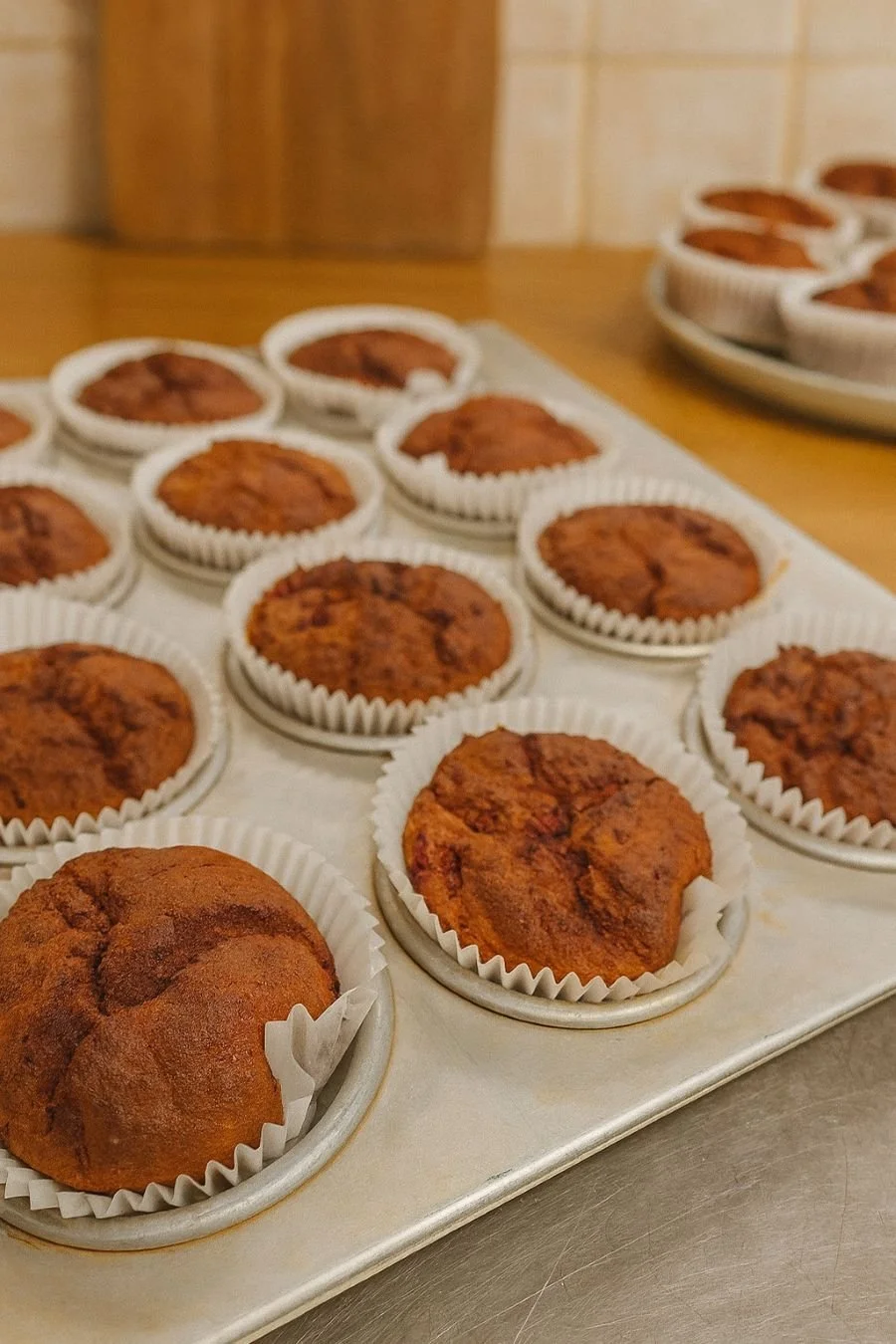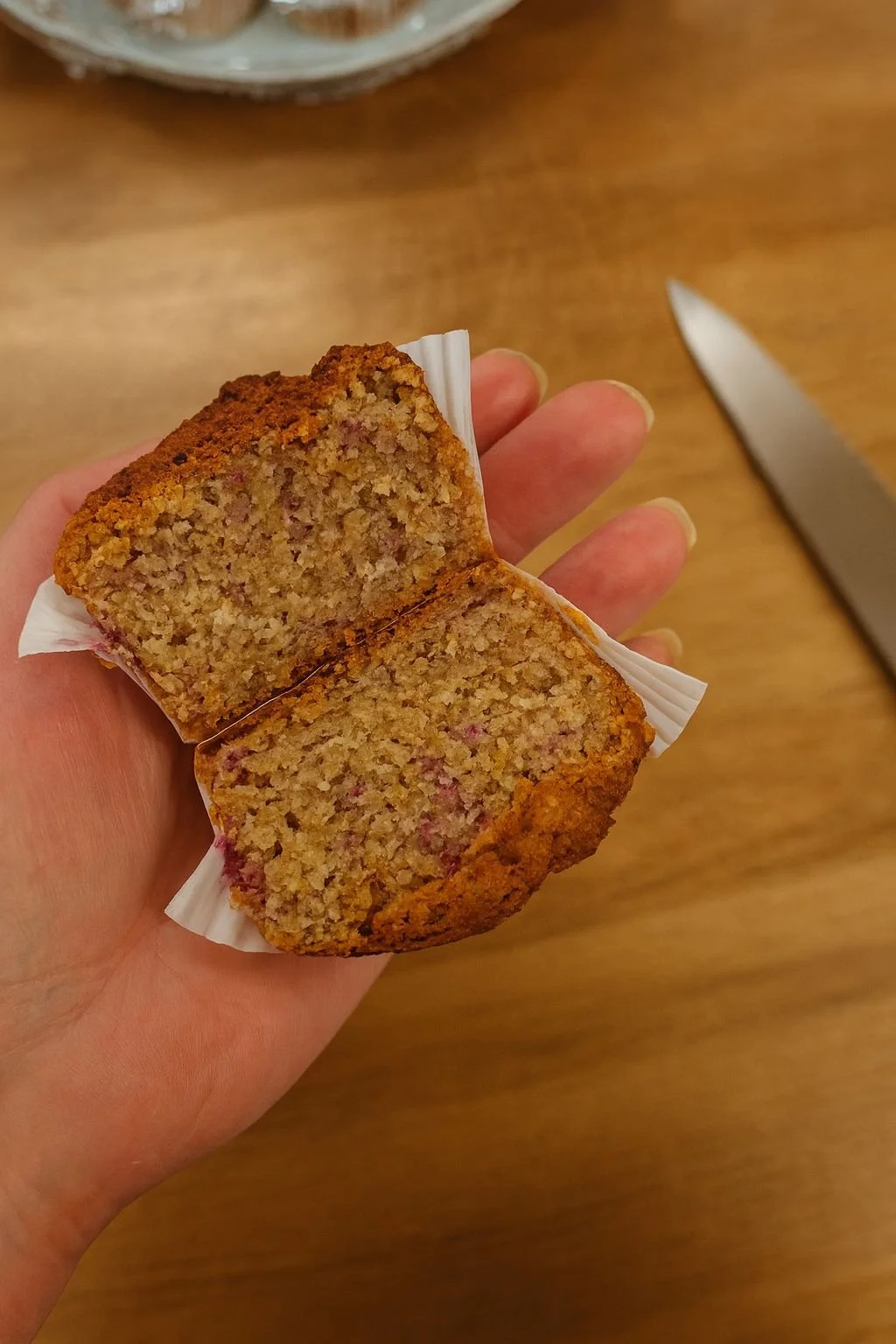Greek Yoghurt and Raspberry Muffins for Women’s Health
These Greek yoghurt and raspberry muffins are light, fluffy, and packed with hormone-supportive ingredients. With oats, ground flaxseeds, raspberries, and coconut oil, they’re a nourishing snack that works perfectly for a school lunchbox, afternoon tea, or quick breakfast. They also freeze well, and when made with gluten-free oats, they’re suitable for wheat-free diets.
Why these muffins support women’s hormone health
Oats for sustained energy and gut health
Oats are rich in beta-glucan fibre, which helps regulate blood sugar levels and supports cholesterol metabolism, both important for hormone balance and cardiovascular health (Whitehead et al., 2014). Stable blood sugar is particularly important for managing PMS, PCOS, and perimenopause symptoms. See my blog post on the benefits of oats for women’s health.
Flaxseeds and female hormone balance
Ground flaxseeds are one of the richest sources of lignans, plant compounds with phytoestrogenic properties that can support oestrogen metabolism and menstrual health (Adolphe et al., 2010). Studies suggest flaxseed intake may improve cycle regularity and reduce menopausal hot flushes, making them a powerful addition for female hormone care.
Raspberries, ellagic acid, and antioxidants
Raspberries are naturally rich in vitamin C, fibre, and plant compounds like polyphenols and ellagic acid. Ellagic acid has been shown to reduce oxidative stress, support liver detoxification pathways, and may play a role in modulating oestrogen activity, which is important for hormone balance (Zhang et al., 2014). Combined with the antioxidants in raspberries, this makes them a powerful food for supporting reproductive health, fertility, and healthy ageing.
Oleic acid and hormone production
Coconut oil provides a small amount of oleic acid, a monounsaturated fat that supports cell membrane integrity and hormone production. Adequate intake of healthy fats is essential for ovarian function and the synthesis of key reproductive hormones (Rosqvist & Kolehmainen, 2016).
Perfect for school lunchboxes
These muffins are nut-free, making them suitable for school lunchboxes. They’re naturally sweetened with honey and contain protein from Greek yoghurt, helping to keep kids (and adults) fuller for longer without a sugar crash.
Freezer-friendly
Bake a batch, allow them to cool, and store in the freezer for up to 2 months. Simply defrost overnight in the fridge or pop into a lunchbox frozen - they’ll be ready to enjoy by morning tea.
Greek Yogurt and Raspberry Muffins
Makes: 12 muffins
Prep time: 10 minutes
Cook time: 20-25 minutes
Ingredients
110 ml coconut oil (½ cup), melted
225 g oats (2 ½ cups, use gluten-free if required)
40 g ground flaxseeds (⅓ cup)
3 tsp baking powder
1 tsp bicarbonate of soda
½ tsp salt
2 eggs
75 ml honey (¼ cup)
200 g Greek yoghurt (¾ cup)
200 g raspberries (1 ½ cups, fresh or frozen)
Method
Preheat your oven to 170°C. Line a 12-hole muffin tray or spray with coconut oil.
In a food processor or blender, blitz the oats into a fine flour. Add flaxseeds, baking powder, bicarb, and salt. Blend to combine.
In a mixing bowl, whisk together the melted coconut oil, eggs, honey, and yoghurt.
Pour the dry mixture into the wet ingredients and whisk until a batter forms.
Fold through the raspberries.
Spoon into your prepared muffin tray and bake for 20-25 minutes, or until a skewer comes out clean.
Allow to cool before removing from the tray.
Ready to support your hormone health?
If you’re struggling with PMS, PCOS, perimenopause, or other hormone concerns, I can help you find a personalised nutrition plan that works for your body.
References
Adolphe, J. L., Whiting, S. J., Juurlink, B. H., Thorpe, L. U., & Alcorn, J. (2010). Health effects with consumption of the flax lignan secoisolariciresinol diglucoside. British Journal of Nutrition, 103(7), 929–938. https://doi.org/10.1017/S0007114509992786
Basu, A., Rhone, M., & Lyons, T. J. (2010). Berries: emerging impact on cardiovascular health. Nutrition Reviews, 68(3), 168–177. https://doi.org/10.1111/j.1753-4887.2010.00273.x
Rosqvist, F., & Kolehmainen, M. (2016). Fatty acids and metabolic health. Nutrients, 8(12), 747. https://doi.org/10.3390/nu8120747
Whitehead, A., Beck, E. J., Tosh, S., & Wolever, T. M. S. (2014). Cholesterol-lowering effects of oat β-glucan: a meta-analysis of randomized controlled trials. American Journal of Clinical Nutrition, 100(6), 1413–1421. https://doi.org/10.3945/ajcn.114.086108
Zhang, H. M., Zhao, L., Li, H., Xu, H., Chen, W. W., & Tao, L. (2014). Research progress on the anticarcinogenic actions and mechanisms of ellagic acid. Cancer Biology & Medicine, 11(2), 92–100. https://doi.org/10.7497/j.issn.2095-3941.2014.02.004
© 2025 Feminalysis. All rights reserved. No part of this recipe may be reproduced without written permission.



